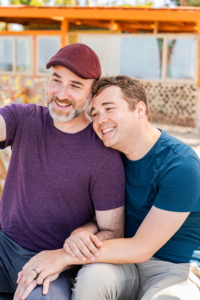On the Road – Moishe House Mexico City

Mexico City Moishe House residents Michelle and Floretta
Michelle and Floretta greet us with warm smiles and hugs for Shabbat at their Mexico City Moishe House. Located in Condesa, a stylish neighborhood with chic bistros and galleries, the house is contemporary yet cozy with muted color walls, soft lighting, flowers, and plush couches and chairs. Clearly much thought has gone into creating this inviting place. As Michelle explains, “We want people to walk into our house and feel disconnected from all the chaos and pressure of their lives.”
Michelle Epelstein, 25, a graphic designer, and Floretta Mayerson, 22, a social entrepreneur, are Mexico City natives and two of the approximately 350 young adults living in Moishe House’s growing network of 118 homes in 28 countries around the globe. Since 2006, tens of thousands of young adults have engaged with a Moishe House where residents organically create meaningful Jewish community for themselves and their peers.
In the house that they describe as “zen, hipster and natural,” reflecting their personalities as “healthy, stylish and cultural Jews,” Michelle and Floretta host at least weekly experiences tapping into a range of Jewish modes of expression. Highlights include volunteering for social causes, game nights, yoga practice, a women’s discussion group, and a regular Sunday morning hike. In 2019, there were over 65 programs involving nearly 550 unique participants.
The Shabbat gathering was part of Moishe House’s On the Road trip to Mexico City this past December with board members, staff leadership, and friends; a uniquely warm and knowledgeable group, much like the Moishe House residents themselves. Together, we explored Jewish Mexico City through tours and conversations with local community members. We were awed by this huge and clean, easily walkable city with Aztec ruins, 19th-century palaces, Art Deco buildings and brightly-colored murals. Most impressive were the people who were consistently friendly, approachable, and patient with my pretty poor high school Spanish…
As we learned about Mexican City Jewry, it became clear that the community was a study in contrasts, close-knit yet diverse, a part of the Mexican fabric and yet intentionally set apart by its members. Jewish life in Mexico City is largely divided based on ethnicity. Groups include Ashkenazi Jews from Central and Eastern Europe, Sephardic Jews from Turkey and the Balkans, and Levantine Jews, primarily from Syria who are themselves divided into two communities, one from the city of Aleppo and the other from Damascus. Groups rarely mix. Each group takes care of its own with religious, educational, social, and cultural services. In total, 130 service organizations support Mexico City’s Jewish population of 50,000.
Despite differences, Mexico City’s Jews are unified in their strong commitment to the State of Israel and their fear of acculturation. All but a small percentage of children attend Jewish day school. There is an extremely low level of intermarriage, only 3%, with the general Mexican population.
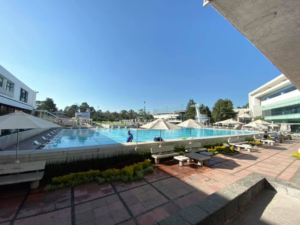
Centro Deportivo Israelita or the Jewish Sports and Cultural Center
The Centro Deportivo Israelita or the Jewish Sports and Cultural Center is another unifying factor. A combination country club and community center, it is the only Jewish institution in Mexico that doesn’t belong to a specific ethnic community, but is considered a Jewish community of its own. On just over 18 acres of stunning grounds, the Center offers access to sports of all kinds with grassy fields, classes, a vast array of equipment, and Olympic-sized pools. The space is inclusive of all backgrounds, with places to pray and study, kosher and non-kosher food, as well as conveniences like a barber shop, full-service bank, a library, and a movie theatre. Plans are also underway to build senior housing on the property. With scholarship support, the Center is made accessible to all.
Mexico City’s Moishe House is also community unto itself, where Jews of different backgrounds find a refreshing environment free of the restrictions, expectations, and traditions found in their ethnic communities. In addition, it is a place where Jews by choice, those from or in interfaith families, and those who didn’t attend Jewish day school are fully accepted when this proves challenging in other parts of Jewish Mexico City. As resident Michelle explains, “We don’t want to make big statements, but to leave space for everyone´s expression.”
Thoughts and questions about community, namely how it is best defined, created, and sustained, were top of mind while I was in Mexico City. We consider the same at Leichtag Commons, where we promote and build vibrant Jewish life in San Diego’s North County Coastal region. Our target Jewish community is very different from Mexico City’s, with an extremely low affiliation rate and a very high percentage of Jews journeying through life with non-Jewish partners. We also know that people are looking for nontraditional approaches to express their Judaism and experiment with creative, onsite programming and support nonprofits working toward aligned goals. Moishe House has been a longtime and trusted partner in this work.
I am grateful to have had the chance to experience so much of what Moishe House and Mexico City have to offer and yet know that there is still a lot more. Fortunately as we parted, Michelle and Floretta reminded us, “Moishe House is your home away from home.” Good news, as I may be back.
Sharyn Goodson
Vice President, Philanthropy & Organizational Development

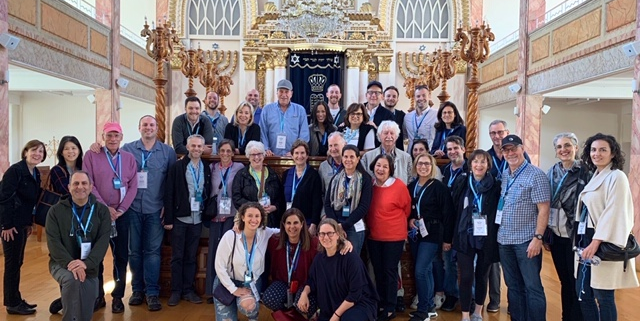
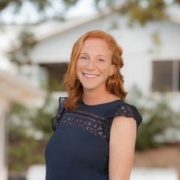

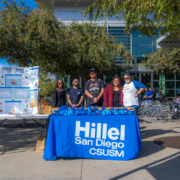




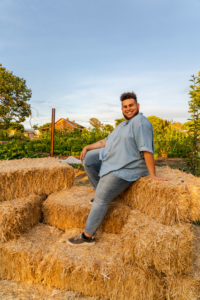 Black, Jewish and Queer. These three identities weave the fabric of who I am, but it took a long time to believe that they could exist together.
Black, Jewish and Queer. These three identities weave the fabric of who I am, but it took a long time to believe that they could exist together.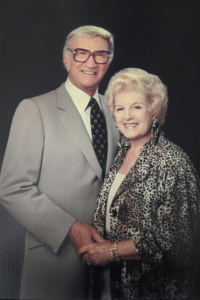 Lee and Toni Leichtag established the Leichtag Foundation in 1991 following the sale of their business. Lee and Toni were lifelong entrepreneurs with a passion for innovation and for supporting talent. They believed that only with big risk comes big reward. Both born to families in poverty, Toni to a single mother, they strongly believed in helping those most in need and most vulnerable in our community. While they supported many causes, their strongest support was for young children and the elderly, two demographics who particularly lack voice in our society.
Lee and Toni Leichtag established the Leichtag Foundation in 1991 following the sale of their business. Lee and Toni were lifelong entrepreneurs with a passion for innovation and for supporting talent. They believed that only with big risk comes big reward. Both born to families in poverty, Toni to a single mother, they strongly believed in helping those most in need and most vulnerable in our community. While they supported many causes, their strongest support was for young children and the elderly, two demographics who particularly lack voice in our society.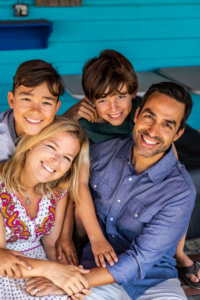 Lifelong Baltimoreans, Rabbi George and Alison Wielechowski and their sons, 11-year-old Lennon and 9-year-old Gideon, are more than pursuing the good life in Southern California. Having moved to San Diego more than three years ago, they are fulfilling a lifelong dream.
Lifelong Baltimoreans, Rabbi George and Alison Wielechowski and their sons, 11-year-old Lennon and 9-year-old Gideon, are more than pursuing the good life in Southern California. Having moved to San Diego more than three years ago, they are fulfilling a lifelong dream.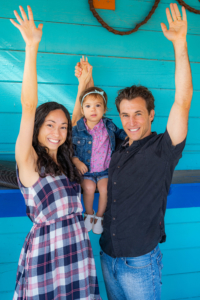
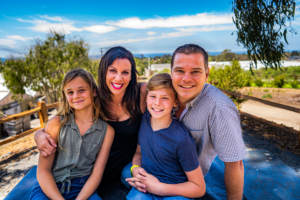
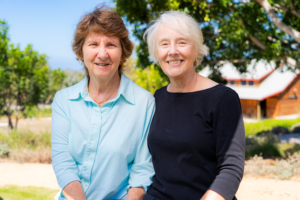
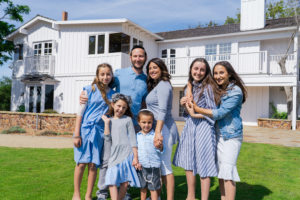
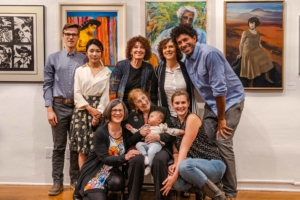
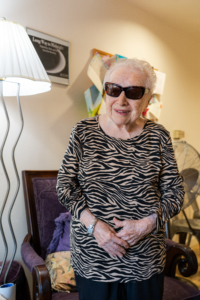
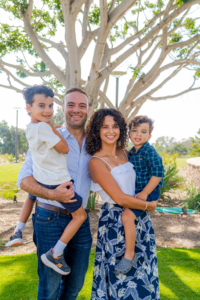
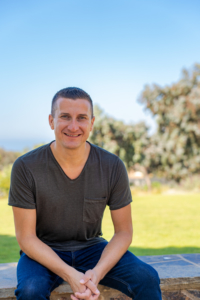 You would think that as the executive director of San Diego LGBT Pride, Fernando Zweifach López Jr., who uses the pronoun they, has done all the coming out they possibly can. A queer, non-binary individual who has worked for many years on civil rights issues, López also speaks openly and often about their father’s family, Mexican-American migrant workers who tilled the fields of rural California.
You would think that as the executive director of San Diego LGBT Pride, Fernando Zweifach López Jr., who uses the pronoun they, has done all the coming out they possibly can. A queer, non-binary individual who has worked for many years on civil rights issues, López also speaks openly and often about their father’s family, Mexican-American migrant workers who tilled the fields of rural California.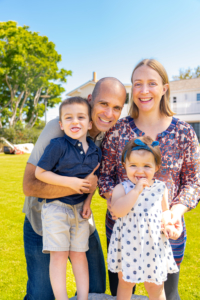 Stacie and Jeff Cook understand commitment. They live it.
Stacie and Jeff Cook understand commitment. They live it.